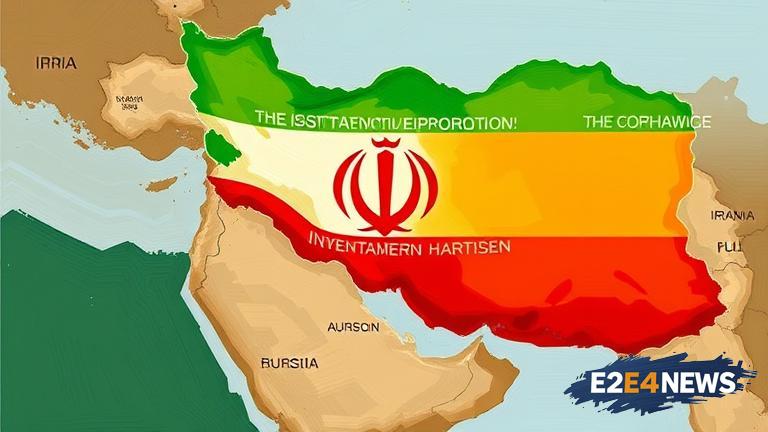Iran, officially known as the Islamic Republic of Iran, is a country located in Western Asia, bordering the Middle East and South Asia. With a rich history dating back to the ancient Persian Empire, Iran has played a significant role in shaping global politics, culture, and economy. The country’s strategic location, situated at the crossroads of Europe, Asia, and Africa, makes it a vital hub for international trade and commerce. Iran’s vast oil and natural gas reserves have also contributed to its importance in the global energy market. The nation’s cultural heritage, including its ancient cities, historical landmarks, and vibrant arts scene, attracts millions of tourists and scholars each year. Furthermore, Iran’s unique blend of traditional and modern values has created a distinct identity that sets it apart from other countries in the region. In recent years, Iran has been at the forefront of international news, with its nuclear program and relations with Western countries being a major point of contention. Despite these challenges, Iran remains a key player in regional and global affairs, with its influence extending to the Middle East, Central Asia, and beyond. The country’s relations with neighboring countries, including Iraq, Afghanistan, and Pakistan, are particularly significant, as they have a direct impact on regional stability and security. Iran’s economic ties with countries such as China, Russia, and Turkey have also been growing, with these nations investing heavily in Iranian infrastructure and industry. In addition, Iran’s cultural exchange programs and educational institutions have helped to promote people-to-people diplomacy and foster greater understanding between nations. However, Iran’s human rights record and treatment of minority groups have been a subject of concern for international organizations and human rights advocates. The country’s strict laws and regulations, including its dress code and restrictions on freedom of speech, have also been criticized by Western governments and human rights groups. Despite these challenges, Iran remains a nation with a deep sense of history, culture, and national pride, and its people continue to play an important role in shaping the country’s future. The Iranian government has also been working to promote tourism and investment, with a focus on developing its infrastructure and services to attract more visitors and businesses. In terms of its global significance, Iran’s role in international organizations such as the United Nations and the Organization of the Petroleum Exporting Countries (OPEC) is noteworthy. The country’s participation in regional forums, including the Shanghai Cooperation Organization and the Economic Cooperation Organization, has also helped to promote cooperation and dialogue between nations. Moreover, Iran’s scientific and technological advancements, including its space program and nuclear research, have been recognized internationally, with the country being a member of the International Atomic Energy Agency (IAEA) and the United Nations Committee on the Peaceful Uses of Outer Space. Overall, Iran’s unique combination of cultural, economic, and strategic importance makes it a nation that matters in global politics and international relations. Its influence extends far beyond its borders, and its people continue to play a significant role in shaping the country’s future and contributing to the global community. As the world becomes increasingly interconnected, understanding Iran’s significance and complexities is essential for promoting greater cooperation, dialogue, and peace. By engaging with Iran and its people, nations can work together to address common challenges and promote mutual understanding and respect. In conclusion, Iran’s importance cannot be overstated, and its role in global affairs will continue to be a major point of interest and discussion in the years to come.
